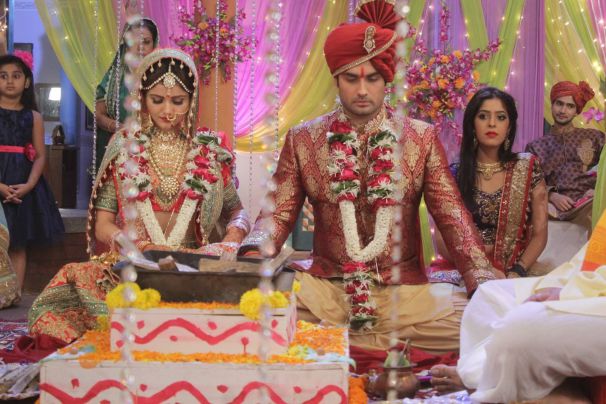I Became A Rebel After My Marriage To Fight Patriarchy

I met this guy through a matrimonial site. He seemed decent, passionate, happy-go-lucky, had a dashing personality and a good family background – a joint family with an age-old family business in a small town. Though I sensed that his family was quite religious and orthodox, I liked the boy. Soon, our parents got involved and we got married in 2015.
I am always surprised how in our society, simply the caste and financial stability hold utmost importance while fixing a match. I remember telling my parents that even though I liked this boy, the match may not be good as we both had lived totally different lifestyles.
I am a girl who comes from one of the top cities in the country (my mother was a working lady). I have had equal opportunities, I am outgoing and I have lived my life as a tomboy. As for the match, this guy comes from an orthodox- joint family in a small town, and he has seen ladies only doing housework all his life and his family fearing God. In my parents’ view, he was good looking, a dashing businessman with a similar financial background and belonged to the same caste. And since I liked him, all this was more than enough to arrange the marriage.
As my wedding was approaching, I started to realize that the family was way too orthodox. And by this I mean that they were the kind who are firm believers of patriarchy.
I was totally devastated when just a few days before our wedding, a lady from my in-laws’ side called me and asked about the dates of my period and since they were near the mega event, I was told to visit the doctor to alter my cycle. My parents had already invested money by then, they had already booked the venue and arranged catering. Indian families invest huge amounts for their daughters’ weddings. To back off then would mean to waste the money. I gave in and went against nature. Then I got married and there were N number of times when I observed and experienced the secondary status of women in their house.
I rebelled and so I went in the bad books of not only my in-laws but also of my maiden relatives. I stopped wearing a mangalsutra, and bangles, and sindoor. I stopped serving food to men while having meals together. I could not consider myself as being secondary or a servant.
I was planning to step out from this marriage. I went into depression, and I tried to commit suicide by consuming sleeping pills. My husband was in the hospital by my side. My choice was not wrong, my husband always extended full support to me. He was an empathetic man who bagged the idea of equal status. He tried his best to convince his family of changing times. He spoke up for me and for the other ladies of the house. And he did this without hurting them.
Though some would taunt him that he is a ‘Joru ka Gulam’, he shook it off by comforting me with the thought that whatever you do, people are going to go against you. He stood unshaken, for me and for the ladies of the house. And so, we both are trying to bring a change in this house. Of course, it will take time, maybe even years, to bring the desired change. But it will happen.
I have always believed that in India, marriages do not happen between two individuals but between two families, and hence there should be a compatible space not just between the husband and wife but also their families.
Marriage is not just about procreation and support. It's much more than that. Satisfaction of emotional, financial and sexual needs are not the only important factors in a marriage. Satisfying individual intellectual needs and respecting each other’s choices, is equally important.